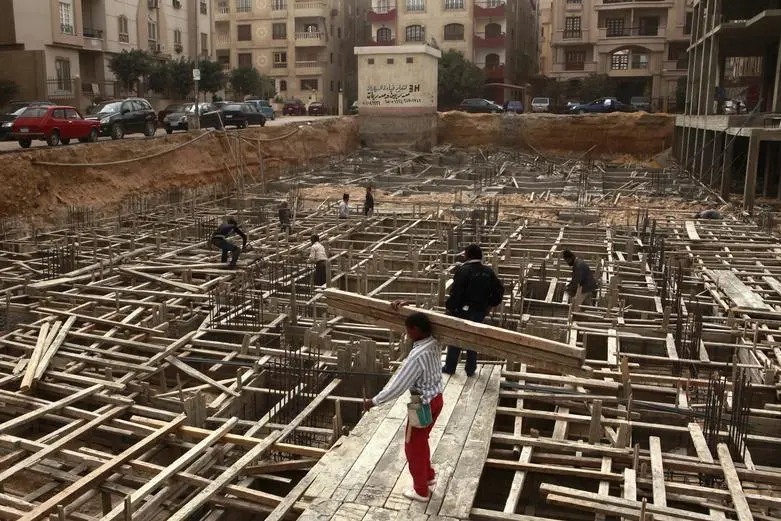PHOTO
Despite the withdrawal of a Chinese company from building Egypt's new capital city, the project is still on track
By Nesma Nowar
The government announced the conditions for building the first phase of the country’s new capital city to real estate developers and investors on Sunday. The first phase will be built on 10,500 acres of land and will include a business and finance centre, an exhibition fair city and residential units.
Assistant to the Housing Minister Khaled Abbas said that the land on offer started from plots of 50 to 500 acres.
Among the conditions set by the government is a downpayment of 20 per cent of the value of the land up to 150 acres and 15 per cent if the area is larger. Insurance worth LE15 million should be paid for spaces up to 60 acres, LE25 million for spaces up to 200 acres, and LE40 million for larger spaces.
The conditions also stipulate that all companies bidding for the project should not include a government official as a founder and that projects and units should be executed in a period of between three and five years depending on the size of land under development.
It is not yet evident which and how many companies have bid to take part in the first phase.
The first phase also includes some residential units which are aleardy being constructed and will be available for citizens starting April.
The announcement of the conditions attached to land in the new capital city in the first phase came a few days after a Chinese company withdrew from the project over price disagreements with the government.
The Chinese withdrawal is the second to hit the project after a United Arab Emirates developer, Capital City Partners, originally meant to lead it, also quit.
Two Chinese state construction companies, China State Construction Engineering Corporation (CSCEC) and China Fortune Land Development Company (CFLD), then stepped in.
CSCEC had secured a $3 billion loan in order to build government facilities for the new city, but no final agreement had been reached, the Housing Ministry said in a statement last week.
Egyptian contractors will now be responsible for building the government facilities, said Ayman Ismail, chairman of the company developing the new city, which is jointly owned by the Housing Ministry and the Armed Forces’ Engineering Authority.
“No agreement that satisfies both parties in terms of price per square metre was reached. The government has received lower prices from Egyptian contractors,” Ismail said.
An official source told Al-Mal newspaper last week that 12 Egyptian companies would take over the building of the government facilities in the new city. He said the task had been delegated to a number of companies to speed up the construction process.
The source added that the contracts stipulate that the execution period is 18 months, saying that the companies were likely to finish the work during only one year, with the aim of finishing the whole project by the first half of 2018.
A memorandum of understanding worth $20 billion with CFLD was meant to be signed in December, but this has not yet materialised, Hisham Sheta, chairman of Income, a local partner in the project, told Reuters.
He expected the deal to be signed within six months.
One Egyptian contractor who preferred to remain anonymous said that the new capital project needed more transparency. He said that it was important to understand more about why the Chinese and Emirati developers had pulled out of the project.
Nonetheless, he said that it was a good thing that Egyptian companies would work on the project as this would help boost job opportunities. He added that the companies had the capacity and technology to execute the project in the best way possible.
The new capital city project is one of President Abdel-Fattah Al-Sisi’s mega-projects that aims to kick-start Egypt’s economy. It was announced during the Egypt Economic Development Conference in March 2015 and was proposed as a way to alleviate congestion in Cairo, which is expected to grow from 18 to 40 million people by 2050.
Dubbed as Egypt’s administrative capital, the new city will be built over 700 square km east of Cairo between Greater Cairo and the Red Sea and will be executed within five to seven years at a cost of $45 billion.
Capital City Partners, an Emirati real estate investment fund, was originally meant to take the lead in the project, but in June 2015 Minister of Housing Mustafa Madbouli acknowledged “complications” in contract negotiations with the company.
Though the project is an ambitious one, some observers have also questioned the need to replace the country’s 1,000-year-old capital with a new one built in the desert.
© Al Ahram Weekly 2017





















